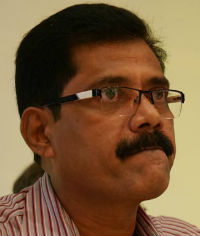This blog has been part of the PSI Asia Pacific Local Government and Utilities Network for around 10 years , with over 2335 posts.
The Network it itself dates back till the late
1990's, including the engagement in building Networks through
resolution of Resolution 34 at PSI Congress 2012 . https://gmpsiaprec.blogspot.com/2012/11/resolution-psi-sector-networksworld.html
Resolution 34 / 2012 (below) …..strengthened and rolled out not just the informal structures also argued the informal Networks would need to be strengthened to provide more formal structures , including .
" That PSI should in addition to the affiliate networks examine thoroughly which existing or future structures are most useful for sectorial work within PSI. This should involve solid and dependable structures that would work closely with the PSI Secretariat. Informal networks are a first start but will not be enough in the longer term "
PSI Congress end of 2017 , took further steps , to invest , support, resource and build on this work with more formal use and mainstreaming of sector activities, including in the Asia Pacific Region , having dedicated responsibilities through its Staff . Section 7 of the current program of Action states -
"Making Sectors Stronger, details the important role of sectors in PSI’s struggle. It outlines how equalities, cross-cutting issues, privatisation and trade union rights work will be incorporated and driven through sectoral work. It sets out how we will strengthen our sector networks and organise to defend our affiliates and their members. It lists specific action for each of PSI’s five sectors." (this includes Utilities and Local Government )
http://congress.world-psi.org/wp-content/uploads/2017/12/EN-Introduction-to-the-PoA.pdf
PSI has also strengthened its Sector engagement with the employment and assignment of dedicated Sector Officers/Responsibilities at a Global level and more recently within the Asia Pacific Region with -
http://congress.world-psi.org/wp-content/uploads/2017/12/EN-Introduction-to-the-PoA.pdf
PSI has also strengthened its Sector engagement with the employment and assignment of dedicated Sector Officers/Responsibilities at a Global level and more recently within the Asia Pacific Region with -
Raman Kannan - taking responsibility for
Local Government across the Region. Kannan is also the full time
PSI Sub Regional Secretary for the South Asia Sub Region .
Ian Mariano - taking responsibility for Utilities . Ian is also the full time PSI Sub Regional Secretary for the South East Region.
PSI Asia Pacific Region Contacts -
Kate Lappin Regional Secretary for the Asia Pacific Region kate.lappin@world-psi.org
Kate Lappin Regional Secretary for the Asia Pacific Region kate.lappin@world-psi.org
Ian Mariano Sub-Regional
Secretary for South East Asia ian.mariano@world-psi.org
PSI Global
Contacts -
David Boys –
Deputy General Secretary – Utilities david.boys@world-psi.org
Daria Cibrario - Local and Regional Government Officer daria.cibrario@world-psi.org
You can also contact Raman and Ian at
https://www.facebook.com/PSIAPRO/posts/1524036660964280
Daria Cibrario - Local and Regional Government Officer daria.cibrario@world-psi.org
You can also contact Raman and Ian at
https://www.facebook.com/PSIAPRO/posts/1524036660964280











